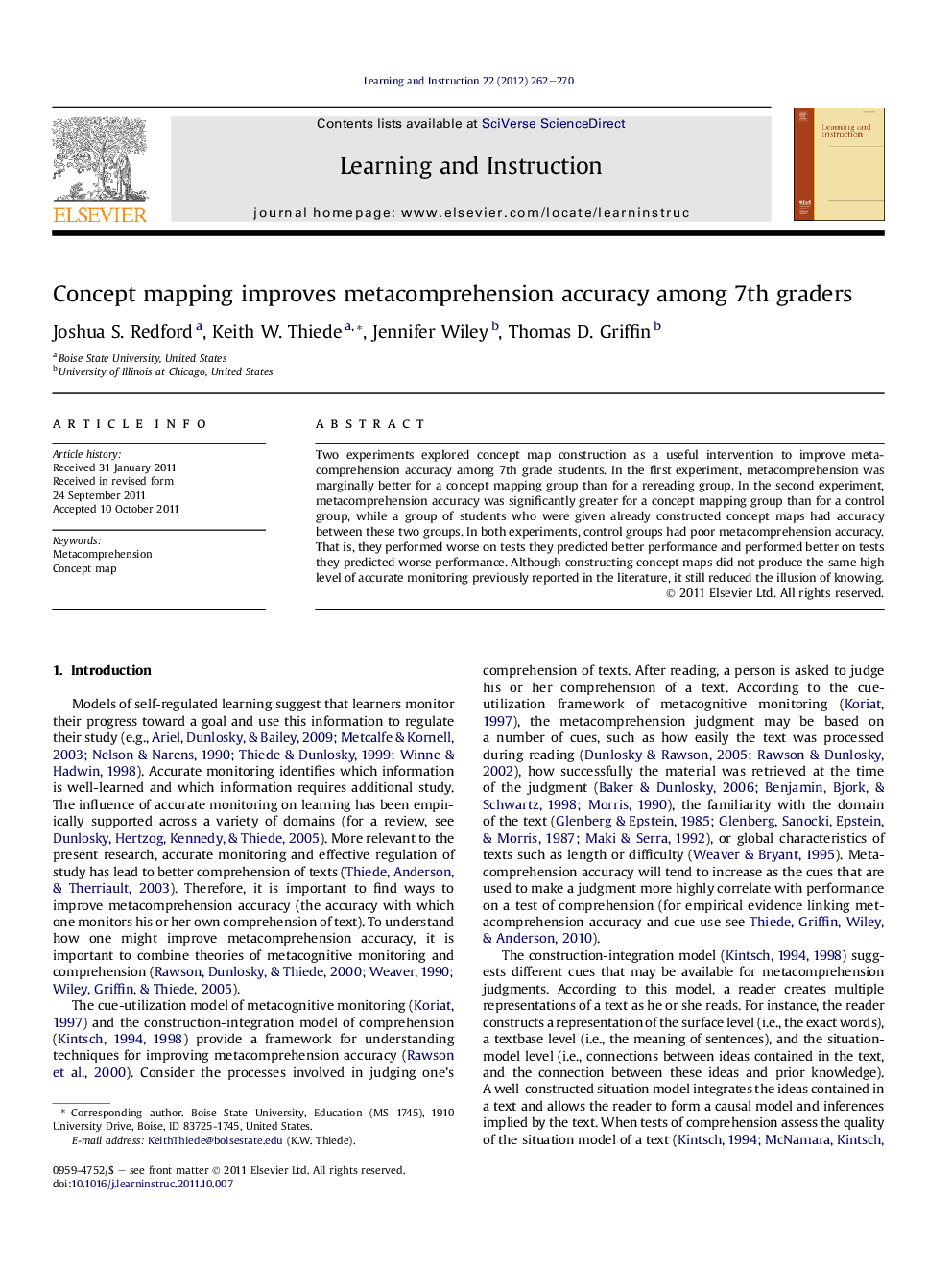| Article ID | Journal | Published Year | Pages | File Type |
|---|---|---|---|---|
| 365674 | Learning and Instruction | 2012 | 9 Pages |
Two experiments explored concept map construction as a useful intervention to improve metacomprehension accuracy among 7th grade students. In the first experiment, metacomprehension was marginally better for a concept mapping group than for a rereading group. In the second experiment, metacomprehension accuracy was significantly greater for a concept mapping group than for a control group, while a group of students who were given already constructed concept maps had accuracy between these two groups. In both experiments, control groups had poor metacomprehension accuracy. That is, they performed worse on tests they predicted better performance and performed better on tests they predicted worse performance. Although constructing concept maps did not produce the same high level of accurate monitoring previously reported in the literature, it still reduced the illusion of knowing.
► Two experiments explored concept map construction to improve metacomprehension. ► First experiment found marginal improvement with concept mapping. ► Second experiment found improvement with concept mapping. ► Results suggest that constructing concept maps can help young readers.
